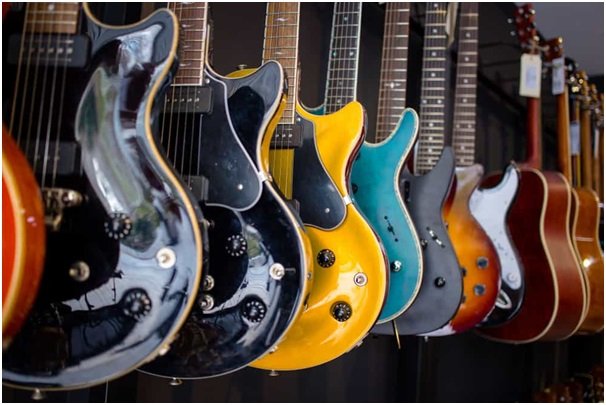Types of Bass Guitars

When it comes to music, the bass guitar plays a crucial role in providing the foundation of rhythm and harmony. From funk to rock to jazz, the bass guitar holds the rhythm section together, adding depth and groove to any composition. In this article, we will explore the different types of bass guitars available in the market, each catering to specific musical styles and player preferences. Whether you are a seasoned bassist or just starting your musical journey, understanding the various bass guitar types will help you find the perfect instrument for your needs.
Electric Bass Guitars
The electric bass guitar, often referred to as the “electric bass” or simply “bass,” is the most common type of bass guitar used in modern music. It features a solid body with magnetic pickups that convert string vibrations into electrical signals, which are then amplified through an amplifier. Electric bass guitars come in various shapes and sizes, such as the iconic Precision Bass (P-Bass) and Jazz Bass (J-Bass) by Fender, each offering unique tonal characteristics.
Acoustic Bass Guitars
Acoustic bass guitars are designed to produce sound without the need for amplification. These instruments feature a hollow body and use acoustic principles to amplify the sound produced by the vibrating strings. While acoustic bass guitars can provide a warm and rich tone, they are often not as loud as their electric counterparts, making them more suitable for smaller, intimate settings or unplugged performances.
Fretted Bass Guitars
Fretted bass guitars have metal frets embedded on the fingerboard, providing specific positions for the strings to be pressed down to produce different notes. These frets enable precise intonation and make it easier for beginners to find the correct pitch. Fretted bass guitars are widely used in various genres, including rock, pop, and country.
Fretless Bass Guitars
In contrast, fretless bass guitars do not have frets on the fingerboard. Instead, they feature a smooth, uninterrupted fingerboard, allowing for continuous pitch variation. Playing a fretless bass requires a more experienced and trained ear, as players must rely on muscle memory and precise finger placement to hit the correct notes. Fretless bass guitars are popular in jazz and certain fusion styles due to their expressive and smooth sound.
Upright Basses
Also known as double basses or contrabasses, upright basses are the largest and oldest type of bass instrument. These instruments are commonly used in classical, jazz, and bluegrass music. Upright basses are played in an upright position, either with a bow (arco) or by plucking the strings with the fingers (pizzicato). Their deep and resonant sound adds a distinctive texture to any ensemble.
Multi-Scale Bass Guitars
Multi-scale bass guitars, also referred to as fanned-fret basses, feature a unique design where the frets are angled, creating varying scale lengths for each string. This design optimizes string tension and improves intonation across the fretboard, resulting in enhanced playability and tonal balance. Multi-scale bass guitars are becoming increasingly popular among modern bassists seeking extended range instruments.
Extended Range Bass Guitars
Extended range bass guitars, commonly known as 5-string, 6-string, or even 7-string basses, provide additional low-end notes and expanded range compared to traditional 4-string basses. These instruments are prevalent in progressive metal, fusion, and experimental genres, where the added range allows for more creative expression and complex chord voicings.
Semi-Acoustic Bass Guitars
Semi-acoustic bass guitars combine elements of electric and acoustic basses. They have a hollow or semi-hollow body like an acoustic bass but are equipped with electric pickups for amplification. This hybrid design offers a balanced tonal character with some acoustic warmth and the ability to be played at higher volumes.
Short-Scale Bass Guitars
Short-scale bass guitars feature a shorter neck length, making them more comfortable to play for players with smaller hands or those transitioning from guitar to bass. Despite their smaller size, these basses can still deliver a deep and rich tone, making them suitable for players of all levels.
Active Bass Guitars
Active bass guitars include a built-in preamp that requires a battery to power the electronics. The preamp allows for more control over the instrument’s tonal characteristics, including boosting frequencies and adding more clarity to the sound. Active bass guitars are favored in genres that demand a punchy and modern bass tone, such as metal and funk.
Passive Bass Guitars
On the other hand, passive bass guitars do not require a battery-powered preamp. They rely solely on the magnetic pickups and natural resonance of the wood to produce their sound. Passive bass guitars generally have a more organic and vintage tone, making them popular in blues, classic rock, and roots music.
Signature Bass Guitars
Signature bass guitars are instruments designed and endorsed by famous bassists. These basses often incorporate unique features and specifications that cater to the playing styles and preferences of the endorsing artist. Owning a signature bass allows fans and aspiring musicians to replicate the tones of their musical idols.
Budget-Friendly Bass Guitars
For beginners or musicians on a budget, there are plenty of affordable bass guitars available that offer excellent value for money. These basses may not have all the bells and whistles of high-end models, but they provide a solid foundation for learning and honing one’s skills.
Custom Bass Guitars
Custom bass guitars are tailor-made to meet the specific requirements of individual players. From the choice of tonewoods to the electronics and hardware, every aspect can be customized to create a unique and personalized instrument. While more expensive than mass-produced basses, custom-made instruments are a perfect choice for serious musicians seeking their dream bass.
Conclusion
In conclusion, the world of bass guitars offers a diverse array of choices, each with its own distinctive characteristics and applications. Whether you’re a beginner or a seasoned pro, finding the right bass guitar is essential to your musical journey. Consider your preferred playing style, musical genre, and budget when making your decision. Remember, the perfect bass guitar is the one that inspires you to create and groove effortlessly.












